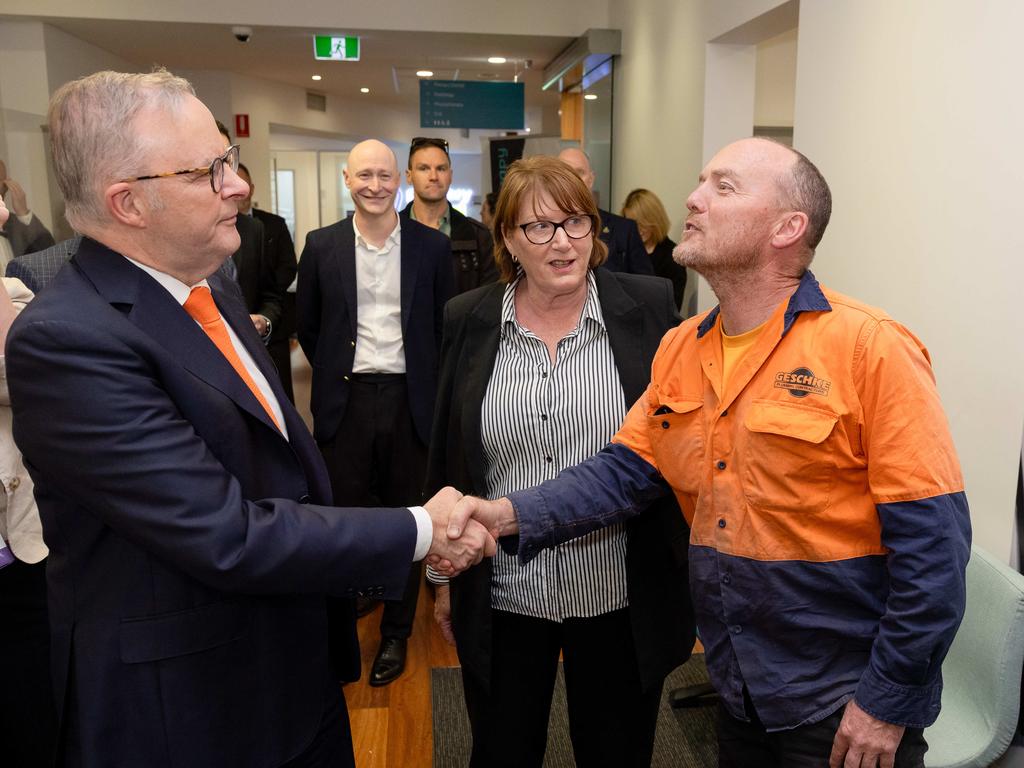Fair Work endorses historic pay rises for low-paid in female-dominated industries
The FWC has recommended pay rises of up to 35 per cent for 175,000 low-paid workers, raising a prospect of higher childcare fees if the commonwealth does not fund wage increases.

The Fair Work Commission has recommended pay rises of up to 35 per cent for 175,000 low-paid workers in female-dominated sectors, and raised the prospect of higher childcare fees for parents if the commonwealth does not commit to funding extra wage increases for early childhood education workers.
Releasing a historic review into the undervaluation of wages in feminised industries, a commission expert panel found workers covered by five awards had been the subject of gender-based undervaluation and should receive what unions representing early childhood employees are calling “life-changing” pay rises.
The recommended percentage increases, to be phased in, are as high as 35 per cent for some health professionals; 27.8 per cent for early childhood workers; and up to 10.9 per cent for pathology collectors.
The recommended increases of up to 27.8 per cent in early childhood are above the 15 per cent pay rise implemented through a recent ground-breaking multi-employer agreement in the sector, with the United Workers Union framing the deal as a “downpayment” to address gender undervaluation.

The 15 per cent rise required $3.6bn in funding by the Albanese government over two years and Labor has yet to state its position on funding for further pay rises.
Recommending the 27.8 per cent increase be phased in over five years, the commission said the likely outcome of a lack of funding beyond the 15 per cent “is that providers will be forced to increase their fees, which will have consequences for the capacity of at least some parents with young children to participate in the workforce”.
However, it said two matters ameliorated the cost impact: the existing funding for a 15 per cent wage increase, and the fact a significant minority of employers already pay over-award rates, meaning there was some capacity to absorb the recommended increases.
Australian Industry Group chief executive Innes Willox said no increase in funding would result in “potentially unaffordable increases in childcare costs for some parents”.
“In some circumstances, it will no doubt also result in the reduced availability of childcare services. This is an intolerable situation,” he said. “Employers, workers and parents will be eagerly awaiting the response of both sides of politics to this issue.”
A Labor spokesman said the lengthy and complex preliminary decision “sets a pathway” for appropriately valuing the important work of women covered by the awards.
“We intend to analyse the decision carefully to understand its full scope and effect,” they said, adding a re-elected Albanese government would manage any changes in a fiscally and economically responsible manner. “When it comes to early education, we’re already making sure our early educators are getting fair wages without putting cost-of-living pressure on families.”
Opposition workplace relations spokeswoman Michaelia Cash said the Coalition supported the commission being the independent body that determined pay and conditions for awards after considering the views of all stakeholders. “We will examine this decision and its implications,” she said.
In the case of the pharmacy award, the expert panel determined a 14.1 per cent increase in minimum wages rates in three phases from June this year through to mid-2027 was needed to rectify gender-based undervaluation.
In relation to other awards, the panel set out provisional views on pay rises but will take submissions on operative dates and phasing-in before determining the amount and timing of increases.
The commission said it did not expect its recommendations would require any significant additional NDIS funding by the commonwealth.
Addressing the private health sector’s capacity to pay wage increases generally, it said labour costs were the largest operating expense of private hospitals but they were substantially constrained in their capacity to increase charges. While the private hospital sector recently suffered from reduced profit margins and costs rising faster than revenue, private hospitals would benefit from growing demand for health services from an ageing population, which was likely to improve revenue and profits.
The direct effect of increases to award minimum wage rates on the sector was also significantly limited by the fact that a large proportion of employees were paid above-award rates either through enterprise agreements or individual arrangements.
The ACTU said it was concerned that proposed changes to the social and community services award would have unintended consequences that could disadvantage some workers.
ACTU president Michele O’Neil said the commission’s decision recognised workers should not be undervalued and underpaid because of their gender.








To join the conversation, please log in. Don't have an account? Register
Join the conversation, you are commenting as Logout